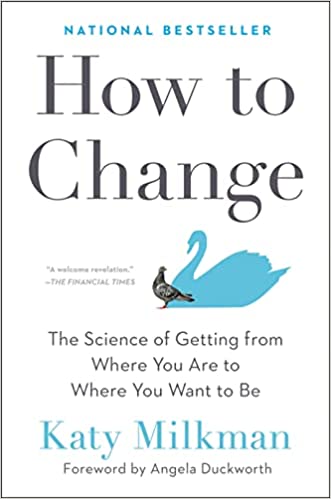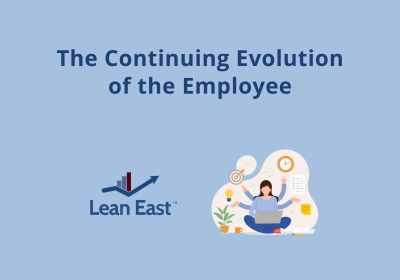I recently finished the 2021 book How to Change: The Science of Getting from Where You Are to Where You Want to Be by Wharton Professor Katy Milkman.
Milkman shares a number of great tips and hacks that will help you make improvements in your life. Here are seven of her top ideas from the book.
Fresh Starts are a Great Time for Change
Milestone dates are a great time to begin a new habit. Fresh starts can include:
- Special dates, like an anniversary, birthday, or start of a new year
- Life events, including moving, starting a new job, a new relationship, child, etc.
- Other resets (new week, new month, etc.)
Milkman’s research shows that beginning new habits or making improvements that coincide with a fresh start are more likely to succeed.
On the other hand, fresh starts can also disrupt good habits. Milkman recommends being prepared for this and making sure to focus on the first few days of any fresh starts.
Know How to Manage Impulsivity
Most human beings make decisions based on short-term thinking. We want to satisfy urges and have fun. For example, we see a bag of chips sitting on the kitchen counter and want to eat them, despite not being hungry.

We can use our tendencies towards impulsivity as a benefit in some instances and manage around them in others. Here are a few suggestions:
- Avoid situations where you will be tempted into making bad long-term decisions. For example, buy healthy snacks instead of junk food so that is all you will have at home when you get hungry.
- Set goals with an element of “fun” in them so you want to do them.
- Gamification can help. Turn your goal or habit into a game, or have a friendly competition with a friend.
- Use rewards to help you stick to habits. One way is to reward yourself with a small treat at night only if you met your goals for the day.
Avoid Procrastination
Anticipate that you will come up with excuses for why you aren’t following through with your goals. Willpower typically fades in people as a day becomes longer and harder. Create constraints that will help you to avoid procrastination. For example, if you really need to study you may want to drive to the library to eliminate other options. Some people use apps that automatically limit screen time. Others use cash commitments or public pledges to drive them to stick to their goals.
One of my favorite examples of avoiding procrastination is the Stephen King short story, “Quitters, Inc.” The main character of the story hires a company to help him quit smoking. I encourage you to read the story to learn the great way he avoids procrastination!
Forgetfulness is Common . . .
Many people fail to change because they forgot to complete the goal or habit. Milkman has three tips to help us remember.

- Use an “anchor” to remind us to begin the habit. Anchors work best if they are right before the new habit we want to begin. A good anchor for me is brushing my teeth because I already do this twice a day, every day.
- Avoid setting too many goals or making too many changes at once. Keep it Simple, Smarty!
- Use checklists as a reminder. This is a great tip if you have multiple changes you are making at once. Be sure to use an anchor to remind you to refer to the checklist!
Defeat Laziness
All things equal, people will chose the easier way. Milkman suggests a few ideas that I have incorporated into my routines already:
- Uses nudges to help you along. Defaults are important, as many people will not bother to change them!
- Allow some flexibility with a new habit. Don’t get so rigid with the timing or follow-through that you allow yourself to fail too easily. This is another reason to start small!
- Track habits and seak to maintain a streak. You can learn more about these approaches on our post about developing good habits.
Confidence as an Advantage
Self-doubt will crimp progress or even prevent people from starting on a new goal. A simple hack to help people achieve a goal is to ask them for advice on the topic. This keeps the topic current and encourages them to provide good advice that they then follow!
Providing unsolicited advice to them, on the other hand, will probably undermine the goal. For example, if your partner wants to exercise more don’t point out that they aren’t exercising. Ask them to teach you some new exercises instead.
Use Conformity and Peer Pressure to Stay on Track

The company you keep is important! If you want to improve yourself it is helpful to associate with supportive, high achievers.
Find a partner who will change with you. Announce your change to your family and co-workers and benefit from either the support they provide or the peer pressure they exert.
The Science of How to Change
We encourage you to read How to Change: The Science of Getting from Where You Are to Where You Want to Be by Katy Milkman to learn more. It is a fairly easy read and if it helps you make just one improvement in your life it will be worth it!






I found this summary incredibly insightful! The practical strategies for initiating change in our daily lives resonate deeply with me. I particularly appreciated the emphasis on the role of small habits in making significant transformations. Can’t wait to implement some of these ideas!
This summary of “Lean East” really highlighted the importance of mindset in driving change. I appreciated the practical strategies mentioned, especially the emphasis on continuous improvement. It’s inspiring to see how applying these concepts can lead to meaningful transformation, both personally and in organizations! Looking forward to putting some of these ideas into action!
I really enjoyed this summary of “The Science of How to Change.” It’s fascinating to see how behavioral science can guide personal transformation. The practical strategies mentioned are really helpful, especially the emphasis on small, manageable changes. I’m excited to apply these concepts in my own life! Thanks for sharing!
This summary of “Lean East” provides such valuable insights into the science of change! I appreciate how it breaks down complex ideas into actionable steps. It’s fascinating to see how applying these principles can lead to more effective personal and organizational transformation. Thanks for sharing this!
I loved this summary! It’s fascinating to see how understanding our habits can drive real change in our lives. The practical strategies outlined in the Lean East book seem so actionable. I’m especially intrigued by the idea of incremental changes leading to significant transformations. Can’t wait to implement some of these insights!
This summary of “The Science of How to Change” is incredibly insightful! I love how it breaks down the psychological aspects of change and emphasizes the importance of small, consistent actions. It’s motivating to see that real transformation is achievable when we understand the science behind it. I can’t wait to implement some of these strategies in my daily life! Thank you for sharing!
This summary of “Lean East” really opened my eyes to the practical ways we can approach change in our lives and organizations. I loved the emphasis on small, incremental steps rather than overwhelming leaps. Can’t wait to implement some of these strategies! Thank you for sharing!
This summary of “The Science of How to Change” really resonates with me! I appreciate how the author breaks down the process into manageable steps. It’s empowering to think that change doesn’t have to be overwhelming. Can’t wait to start applying some of these principles in my own life!
I really enjoyed this summary! The insights on how to effectively implement change in our lives were eye-opening. I especially appreciated the emphasis on small, actionable steps. Looking forward to diving deeper into the concepts from the book!
I found the insights on behavior change in this summary incredibly enlightening! The emphasis on small, incremental steps really resonates with me. It’s a refreshing reminder that lasting change doesn’t have to be overwhelming. I’m excited to apply some of these strategies in my own life! Thank you for sharing!
This summary of “The Science of How to Change” is incredibly insightful! I love how it breaks down the complexities of behavior change into actionable steps. The concept of Lean East really opens up new perspectives on personal development. Can’t wait to apply these principles to my own life! Thanks for sharing!
I really enjoyed this summary of “Lean East”! It’s fascinating how scientific principles can be applied to change. The practical strategies outlined are a great reminder that change doesn’t have to be overwhelming. Looking forward to implementing some of these ideas in my own life!
This summary of “The Science of How to Change” really resonated with me! I appreciate how it breaks down the process of change into actionable steps. It’s empowering to know that change is a science and not just a personal struggle. I’m excited to apply some of these concepts in my own life! Thanks for sharing!
I really enjoyed this summary! The insights on how small, consistent changes can lead to significant transformations are both motivating and practical. I appreciate the emphasis on understanding our own behaviors and the strategies to implement change effectively. Great read!